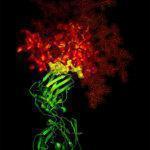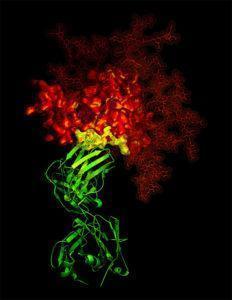Researchers from Rockefeller University have described a patient who has both broadly neutralizing antibodies against HIV as well as autologous viruses which are sensitive to those antibodies. This phenomenon is very rare and gives insight into the antibody-virus interplay in HIV natural infection.
In most instances, people who develop broadly neutralizing antibodies in HIV natural infection have a worse prognosis than those who do not. These individuals usually have higher viral loads and lower CD4 counts. The fact that they produce broadly neutralizing antibodies may be because they have a large amount of viral strains in circulation which provide pressure towards the antibodies and cause them to mutate at a higher frequency, increasing the chances of the development of breadth and potency. This has led some researchers to believe antibodies do not play a role in controlling HIV infection and only CD8 T cells are responsible for viremic control.
In this paper, the researchers led by Michel Nussenzweig identified an individual who had been infected with HIV in 1986. This individual was categorized as an elite controller because they were able to control their viremia and remain healthy for all these years. The researchers were able to isolate 3 broadly neutralizing antibodies from this individual which, when added together, were able to neutralize 81% of a 120-virus panel of moderately antibody-neutralization resistant viruses.
What was even more striking is that 2/3 of these antibodies were able to neutralizing some of the autologous viruses from the individual at the same time point that the antibodies were isolated. This suggests that the individual had neutralization-sensitive viruses at the same time as having broadly neutralizing antibodies. This phenomenon is rare as most studies do not find broadly neutralizing antibodies and their sensitive-viruses at the same time point from the same individual.
The researchers went on to immunize humanized mice with a cocktail of the 3 antibodies from this elite controller. They injected the mice with HIV and after 10-14 days they administered one dose of the antibody cocktail. They found that the antibodies lowered the viral load of the infected mice with no viral rebound observed for more than 20 days.
Overall, this study shows that broadly neutralizing antibodies may play an important role in controlling HIV in infected individuals in association with CD8 T cells. The study also sheds light into the interplay between antibody and virus. The antibodies obtained from this individual may prove effective in human studies and may be used for HIV therapy.
Article by Thandeka Moyo

